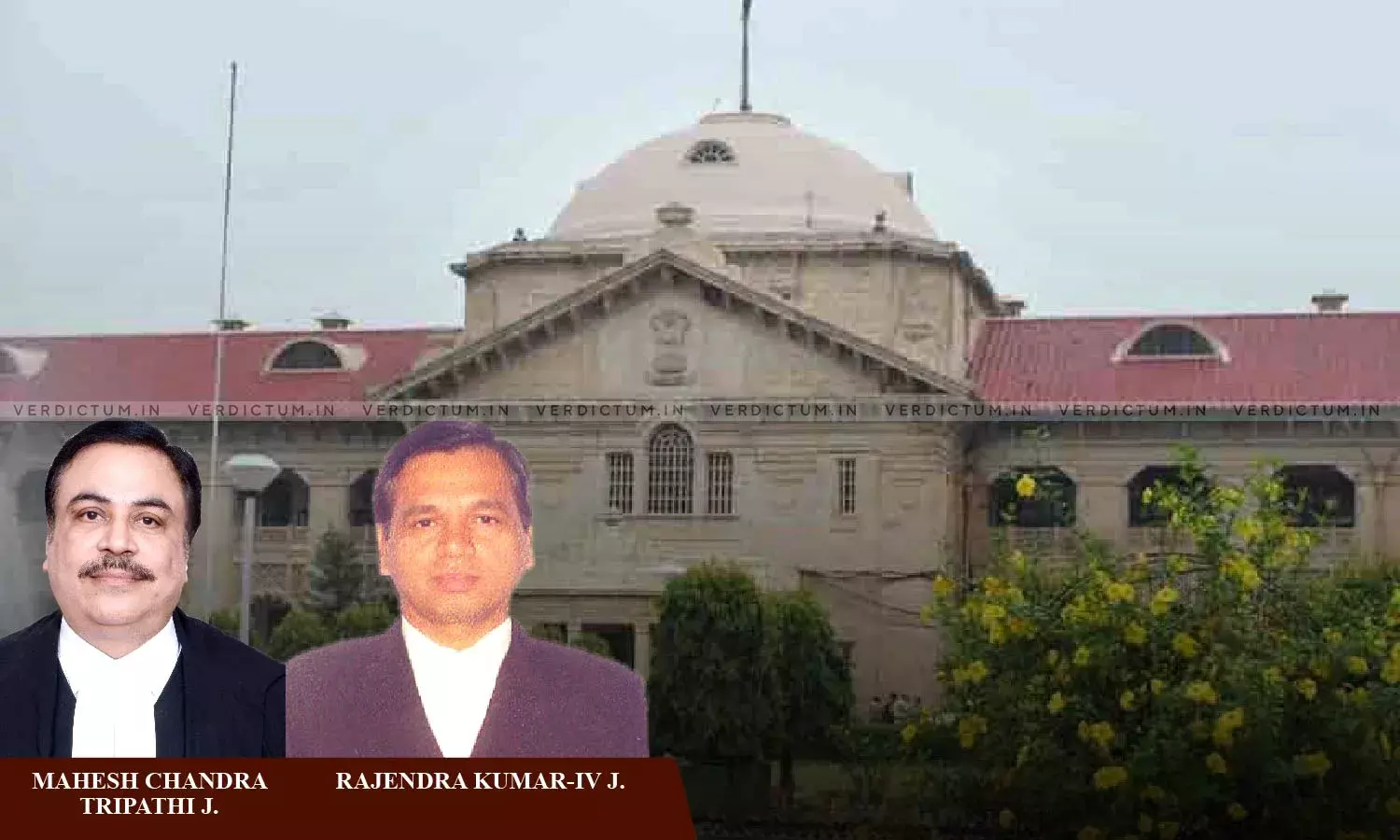Any Punishment Less Than Life Imprisonment Shall Be Contrary To Section 302 IPC- Allahabad HC In A Murder Case

The Allahabad High Court has observed that if an accused is found guilty and is convicted of murder u/s 302 of the Indian Penal Code, 1860 (in short IPC) then the punishment cannot be less than life imprisonment.
The Bench of Justice Mahesh Chandra Tripathi and Justice Rajendra Kumar-IV relied upon the decision of Apex Court in the case of The State of Madhya Pradesh vs. Nandu @ Nandua) (Criminal Appeal No. 1356 of 2022) and observed that "it is well settled principle of law that once an accused is held to be guilty for the offence punishable under Section 302 IPC, the minimum sentence, which is imposable would be the imprisonment for life and, therefore, any punishment/sentence less than the imprisonment for life shall be contrary to Section 302 of the IPC."
In this case, the appeal has been preferred against the judgment and order of the Trial Court wherein the accused were convicted for murder of the accused under Section 302/34 of IPC and were sentenced to undergo imprisonment for life.
It was the prosecution's case that on account of there being the previous enmity between the appellants and deceased and that by not inviting the appellants, the deceased had insulted them in the community and thereafter, they assaulted the deceased with knives in which he sustained serious injuries and died.
The aforesaid incident was witnessed by PW-1 and PW-2 (eye-witnesses) and during the trial of the case, they supported the prosecution's case and their credibility as eyewitnesses to the incident remains intact in their cross-examination and the evidences remained consistent regarding the manner in which the occurrence took place, the Trial Court convicted them u/s 302/34 IPC.
Advocate Imran Mabood Khan appeared for the Appellant and Government Advocate Murlidhar Misra appeared for the Respondent.
The High Court after considering all the facts and materials placed on record found that there were no contradictions in the testimony of the eye-witnesses and observed that "We have gone through the entire evidence very carefully, and find no material contradiction, so as to disbelieve the prosecution case or the individual witness. Minor contradictions are bound to occur but the same will not be fatal as prosecution has otherwise produced trustworthy witness to prove the guilt of accused."
With regard to the argument of the appellant that the evidence of eye-witnesses cannot be relied upon as they are the interested witnesses, the Court observed that though such witnesses should be scrutinized with a little care but once such witnesses were scrutinized and the Court was satisfied that 'the evidence of the interested witness have a ring of truth, such evidence could be relied upon even without corroboration.' Thus, the evidence cannot be disbelieved merely on the ground that the witnesses are related to each other or to the deceased.
The Court further observed that the prosecution has successfully proved guilt of the appellants beyond all reasonable doubt on the basis of evidence, and medical, adduced by it and after appreciating the evidence available on record, the trial Court has rightly convicted and sentenced the appellants and that there is no illegality or infirmity in judgment of conviction and order of sentence. We decline to reverse the judgment of the trial court, which is hereby confirmed.
Consequently, the Appeal was dismissed for being devoid of merit.
Cause Title- Vakeel Qureshi & Ors. V. State of UP

